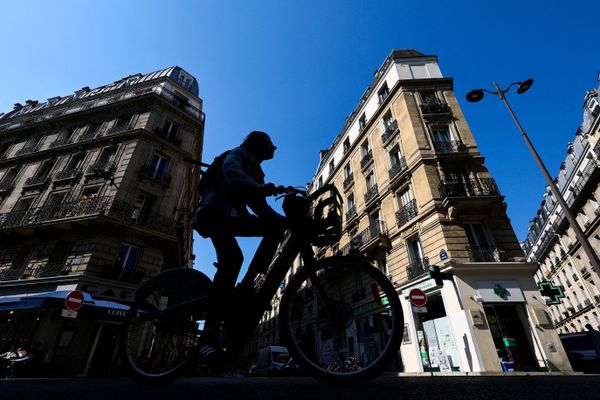PARIS, May 16 — After watching frightening images of a prominent French crypto boss' daughter being attacked on a Paris street during a botched kidnapping, crypto executive Alexandre Aimonino finds solace in the changes he has made to his daily routine.
To stay safe, the 23-year-old co-founder of a crypto compliance software company avoids public transport, skips industry get-togethers and varies his drive home.
"Working in the ecosystem feels like having a target on your back," he told Reuters.
French crypto bosses have reacted with fear and anger after a series of violent kidnappings. While some have stepped up security and are considering bodyguards, others are calling for the right to bear arms, a tougher crackdown on crime, plus deregulation to keep the crypto paper trail more anonymous.
On Tuesday, a masked gang tried to abduct the daughter of Pierre Noizat, the chief executive officer (CEO) of the French crypto firm Paymium, from a street in Paris in broad daylight.
It was at least the third such attack in recent months.
In January, the co-founder of French crypto company Ledger and his wife were kidnapped, while in May, the father of a crypto company head was snatched. All were rescued, but both men lost a finger.
A ransom in cryptocurrency was paid during the kidnapping of the Ledger co-founder, but investigators quickly recouped it.
Details are murky about the gangs behind the attacks, though authorities have said 10 people were questioned after the Ledger attack and seven people were arrested following the first kidnapping in May, with two released for having no connection.
The Paris prosecutors' office did not respond to detailed questions from Reuters.
The rapid rise in the price of bitcoin and other cryptocurrencies in recent years has created a new group of wealthy investors.
Security experts interviewed by Reuters said criminals could be tempted by investors posting evidence of their new wealth and the perception that crypto is easier to launder than cash.
Cryptocurrency has long been demanded as ransom in hacks and cyberattacks, and regulators worldwide are trying to crack down on criminals' use.
"Crypto transactions are more likely to escape the level of scrutiny applied to traditional banking systems," said Clifford Chance lawyer Michael Lyons, who specialises in anti-money laundering.
'Gruesome, brazen'
For some, the attacks are a symptom of France's growing violent crime problem.
Interior Minister Bruno Retailleau met with some crypto bosses on Friday, offering a "full mobilisation of public authorities" to prioritise access to emergency police services and offer home security checks.
One of those present, another Ledger co-founder, Eric Larcheveque, said the attacks could cause people in crypto to leave France and asked for more legal protection for those acting in self-defence, including the right to carry guns.
Noizat's company Paymium suggested deregulation could provide founders with more security.
In a statement on Wednesday, the company criticised European regulations like the international "travel rule" which requires data to be collected about the source and recipient of crypto transfers.
Some crypto bosses are taking measures into their own hands.
Thomas Rossi, who runs bodyguard company Wagram in Paris, said he had many new requests after Tuesday's attack.
French security company ARECIA's CEO Sofiane Aboubeker also said he had seen an increase in requests for protection.
Ben Davis, who runs an insurance brokerage in the United Kingdom for crypto clients, said that while France was facing a particular wave of attacks, there had also previously been incidents in the United States, elsewhere in Europe, and around Asia.
"Two years ago, kidnap and ransom was not really a big problem. No one really wanted to talk about it. Now 100 per cent of our clients are talking about it," he said.
Davis, also a crypto investor, said he has taken steps to increase his own security, but declined to give details.
"These attacks are again becoming more gruesome, more brazen," he said.
— Reuters


